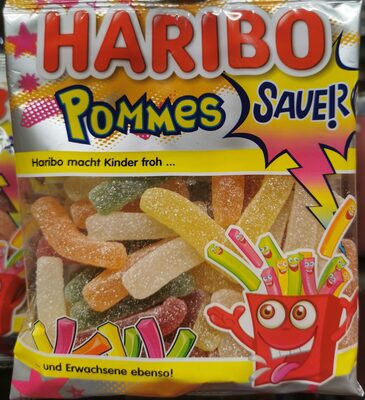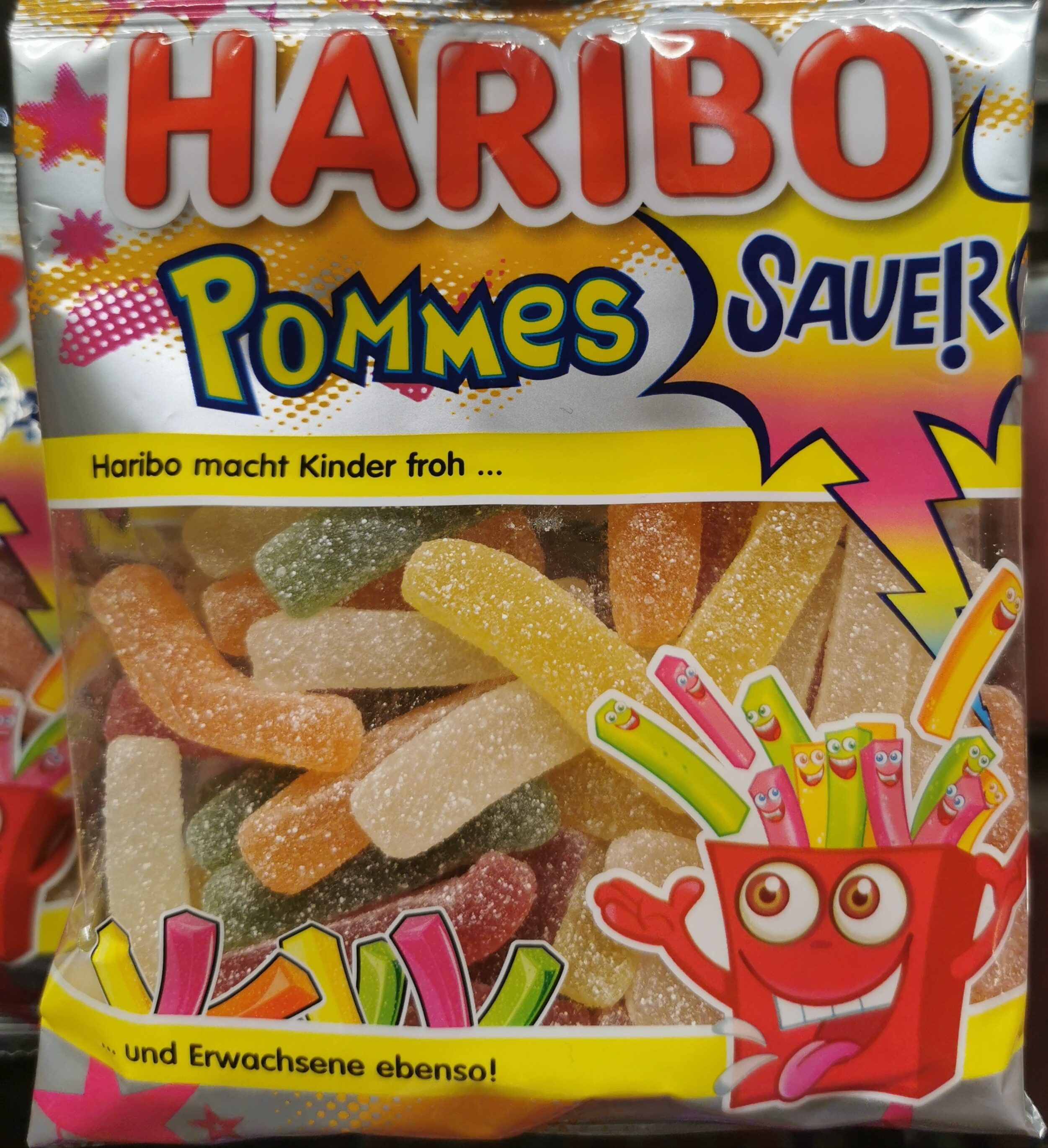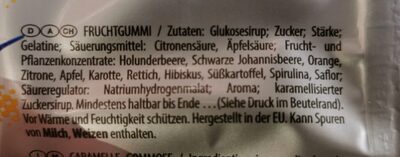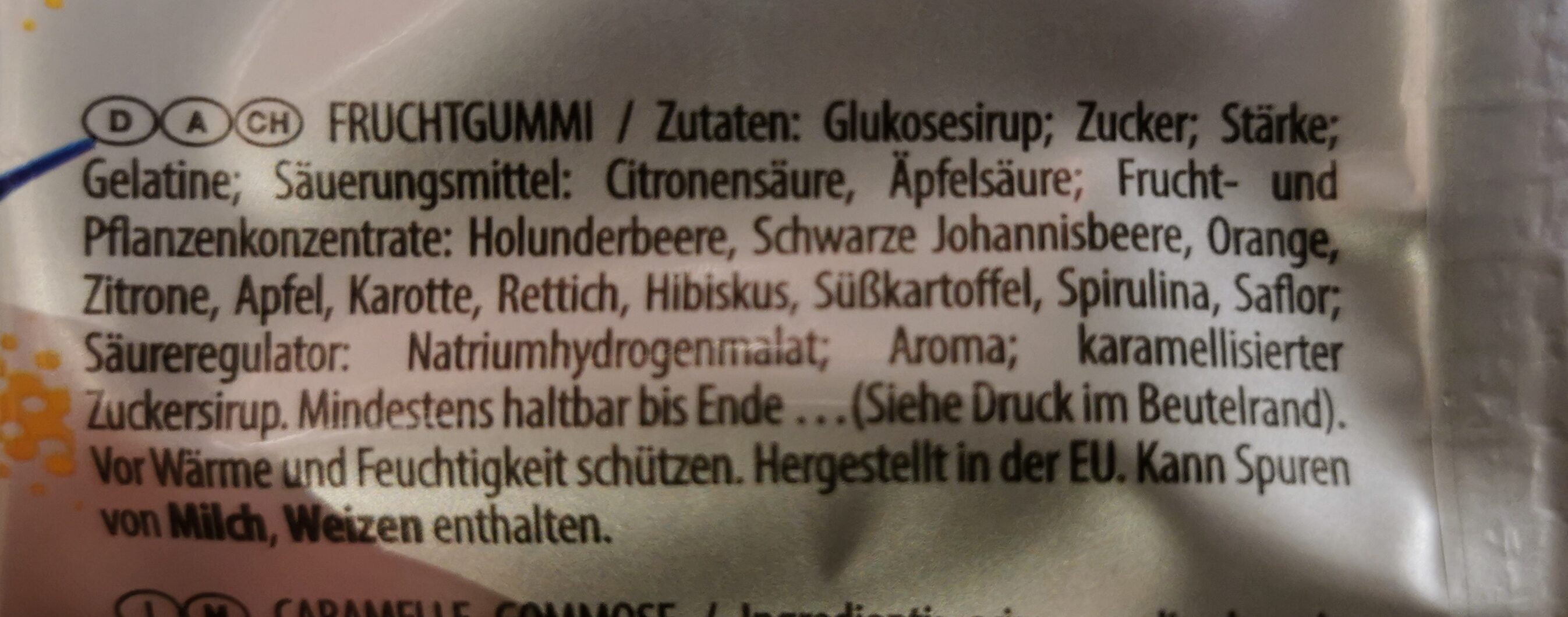Haribo Pommes - 200g
This product page is not complete. You can help to complete it by editing it and adding more data from the photos we have, or by taking more photos using the app for Android or iPhone/iPad. Thank you!
×
Barcode: 9002975330138 (EAN / EAN-13)
Quantity: 200g
Brands: Haribo
Categories: Snacks, Sweet snacks, Cocoa and its products, Confectioneries, Chocolate candies, Bonbons, Candies, Gummi candies, Bonbons gélifiés, Confiseries, Ours gélifiés, Snacks sucrés
Labels, certifications, awards: Made in the EU
Countries where sold: Austria, Frankreich
Matching with your preferences
Environment
Carbon footprint
Packaging
Transportation
Report a problem
Data sources
Product added on by kiliweb
Last edit of product page on by bentren.
Product page also edited by gluten-scan, nourden, openfoodfacts-contributors, roboto-app, vonaeppl, yuka.U0s4aks2VlJ2dm9BeGZRUDlBdm55UGxyNHE2d1cxRzdFZEF6SVE9PQ.
If the data is incomplete or incorrect, you can complete or correct it by editing this page.








